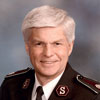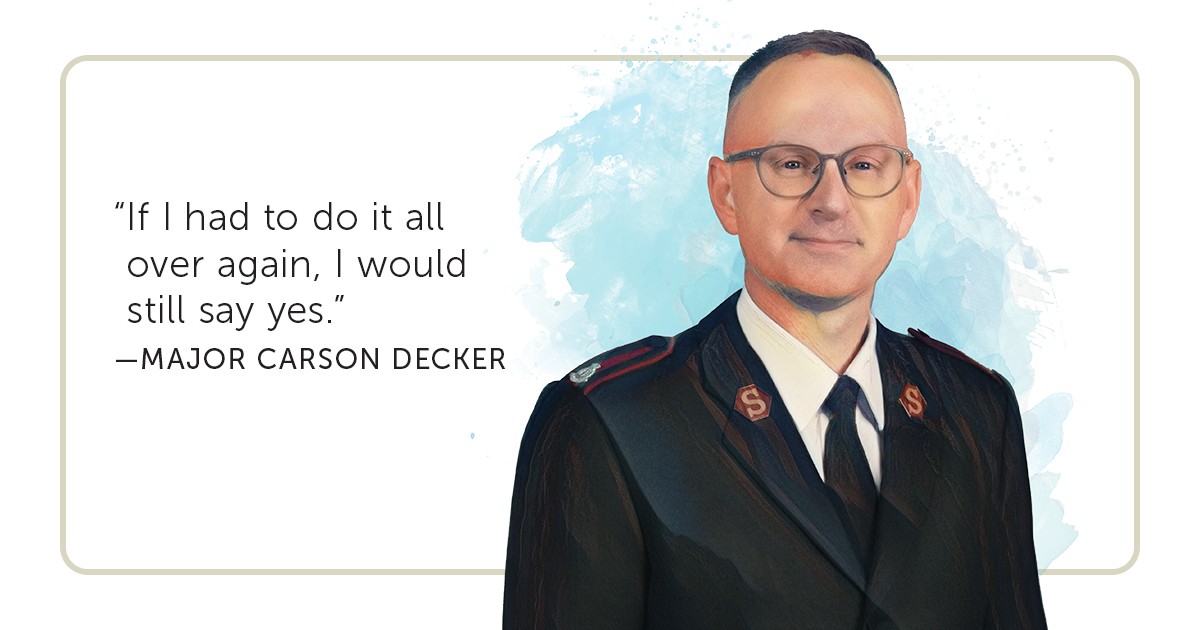 The title question sounds a bit old fashioned today. Why not simply ask, “How are you doing?” or a similar nicety such as, “How's life treating you?” Some Christians are suspicious that posing a question about a person's soul is an anachronism—something that was only understood and accepted in a previous generation. Could it be that just the opposite is true?
The title question sounds a bit old fashioned today. Why not simply ask, “How are you doing?” or a similar nicety such as, “How's life treating you?” Some Christians are suspicious that posing a question about a person's soul is an anachronism—something that was only understood and accepted in a previous generation. Could it be that just the opposite is true?
In his insightful book, Renovation of the Heart, Dallas Willard observes: “We usually know very little about the things that move in our own soul, the deepest level of our life, or what is driving it. Our 'within' is astonishingly complex and subtle—even devious. It takes on a life of its own. Only God knows our depths, who we are and what we would do.”
The soul is mysterious and challenging to define. The Old Testament Hebrew word nephesh refers to a soul or a living being, while at the same time indicating the person's relationship to God. The soul cannot be defined apart from its association with God. The soul manages everything: our thoughts, feelings and deepest emotions. The soul is our life-centre, our character and what makes us unique.
William and Catherine Booth had a vision for lost souls. On May 9, 1912, at the famed Royal Albert Hall in London, England, William Booth delivered his final address. In a strong, compelling voice, he affirmed his commitment to the people for whom Christ died, concluding with his oft-quoted vow: “I'll fight; I'll fight to the very end!” This is The Salvation Army's DNA. In witnessing for Christ, we are called to fight against sin and evil and to share the transforming possibility of his all-embracing wholeness. Catherine Booth challenged her generation with an eloquence and passion that equalled her husband's. Her fervent plea echoes through the century since her death. “Oh, that you would get up,” she urged, “determined, facing the consequences, and come out just as if Jesus Christ were here in the flesh, and were calling for volunteers, to go and be his witnesses to the ends of the earth.”
A prominent American lawyer, Horatio Gates Spafford (1828-88), is best known for his hymn, It Is Well With My Soul. He lost his four daughters in a dreadful sea tragedy as they crossed the Atlantic Ocean in 1873 with their mother, Anna. They were on their way to the Holy Land where Horatio was to meet them after he finished business commitments in Chicago. Upon receiving the horrific news, Spafford crossed the ocean to be with his wife. As the ship sailed near the place where his girls had drowned, he penned his famous poem, entrusting his soul, and the souls of the ones he loved so much, to the Lord:
Whatever my lot, thou has taught me to know
It is well, it is well with my soul.
(SASB 771)
Is everything well with your soul? The question is based on a fervent conviction that more than ever The Salvation Army needs committed officers, soldiers, adherents and friends who are enthusiastically devoted to reaching out and caring for men, women and children who are in desperate need of Christ and his redeeming love.
In his bestselling book, Care of the Soul, Thomas Moore challenges believers to focus on our souls. His statement must be read slowly and several times. “As we become transparent, revealed for exactly who we are and not who we wish to be, then the mystery of human life as a whole glistens momentarily in a flash of incarnation. Spirituality emanates from the ordinariness of this human life made transparent by lifelong tending to its nature and fate.” Are you tending to your soul through prayer and reflection upon God's Word?
As God's people, we have hope. We look forward to the time when Christ will call us to be with him forever. May these words of Horatio Spafford's song be our testimony:
O trump of the angel! O voice of the Lord!
Blessed hope, blessed rest of my soul!
It is well with my soul.
 Commissioner William W. Francis is the Territorial Commander of The Salvation Army Canada and Bermuda Territory. His wife, Commissioner Marilyn Francis, is the Territorial President for Women's Ministries. Commissioners Francis have two adult children, Captain William Marshall and Susan Marjorie, plus six grandchildren.
Commissioner William W. Francis is the Territorial Commander of The Salvation Army Canada and Bermuda Territory. His wife, Commissioner Marilyn Francis, is the Territorial President for Women's Ministries. Commissioners Francis have two adult children, Captain William Marshall and Susan Marjorie, plus six grandchildren.









I am, however, also tempted to suggest a better way of asking the question is to focus on God/Jesus -a question along the lines of "How are things between you and God/Jesus?"